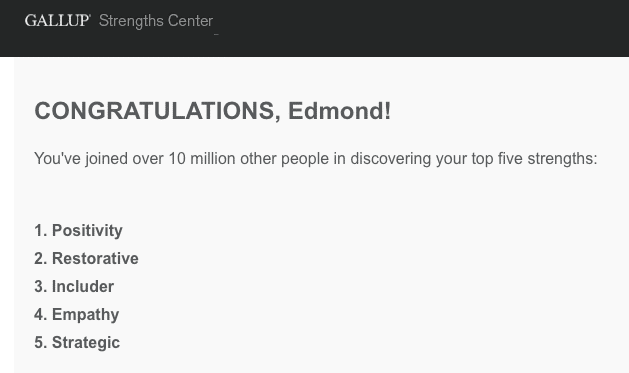I’ve been an insomniac for most of my life. The first memory I have of it being a thing for me was in my first or second year at boarding school when my housemaster remarked on it. He said it was a condition that affected bright people. Of course, I took that. 🙂
Left to my own devices on school holidays, I would stay awake long past midnight. I would read the latest Harry Potter until I finished it, say at 6am in the morning. I would then wake at 11am or 12 noon and not be tired until the early hours again. Over and over. This is fine when you’re on holiday but less so when you have stuff to do the next morning.
I remember at university, I had a 9am exam on Personal Identity. I went to bed at 11pm and watched the hours tick by. By 4am, I was literally punching the walls in frustration. I knew that I had to sleep in order to be at my best in the exam but as 7am rolled around, I knew that ship had sailed. I still did okay in that exam but it was a classic example of insomnia getting the better of me.
The same happened on my attempt to get into the Army. I stayed over at Westbury and that night went to bed at 12am and couldn’t get to sleep for ages. The 5.30am wakeup call and early tests should have screamed at me that this probably wasn’t the best-suited career for me.
Later, I had a second round interview for a pupillage at a criminal law chambers at 12pm on a Saturday. I had done well at the first interview and now was the big one. I lay in bed all night knowing that I needed to sleep to do well in the debates that I knew were coming. I didn’t sleep a wink and all the coffee in the world couldn’t help me. Needless to say, I didn’t get the job.
Insomnia hits every now and again in bursts. I can’t predict when it happens. But when it does, it hits for a few days at a time. I’ve gone through periods where before work the next day, I’ve had to get out of bed at 2.30am/3am and go and drink a few shots of port just to calm my mind down and almost numb my mind so that I can get just a few hours before waking at 7.45am. I’m not at my best at work by any stretch.
The results of insomnia aren’t good. On zero sleep, you feel sweaty as your body is unable to regulate its temperature properly. You feel hazy and almost drunk. You start praying for bedtime although you know that’s miles away. You crave sugar hits and empty carbs. You pray that you don’t have any difficult tasks that require mental sharpness. Did I say that you start praying for bedtime?
What would be the dream? I would love to be able to sleep whenever I wanted. To put my head down at 10pm and be asleep within 10 minutes would be amazing. Angelique is exactly like this. She can close her eyes and be asleep in 2 minutes. To be a morning person like you read in the press, where CEOs like Tim Cook get up at 4am to work out would be the dream. I come closest to being a morning person when I’m back from a visit to Australia, when the jet lag means I’m tired at 8.30pm and wide awake and bouncing out of bed at 5.30am.
What’s working for me at the moment….
Touch wood, I’m almost there. Without jinxing it, my sleep has been okay for a couple of months now. Here’s my routine:
I try to get up around 6.30am so that I’m tired around bedtime. I have a coffee to loosen the bowels and after that, I shower and go to the gym to lift some compound movements to stress the central nervous system. I do bench press, pull ups, seated rows, overhead press in 2o minutes, then up for another shower, then work.
I try not to eat supper too late in the evenings, ideally around 8pm, then the sleep hygiene wind down routine kicks in. I try to avoid too much blue light from screens. I have my laptop screen set to dim after sundown (try installing f.lux). I also set my mobile to dim as well. I try to have just low lighting in my flat after dark and try to be in bed by 12am at the latest.
I write down on post-it notes any thoughts I have for the next day and I try not to have any meetings booked in for the morning, so that I don’t have that anxiety of trying to get a good night’s rest beforehand.
To help calm my mind down at bedtime, I take two capsules of Kalms and then two tablets of melatonin. Melatonin is the hormone that tells your brain to sleep. This might seem like a bit of a cocktail, and it might also be a bit of placebo, buts it’s working for me. Also, I need Angelique to be in bed as well. I like to feel safe as well so I check the doors a couple of times (might well be my OCD as well).
For now, it’s working. I feel great. Rested and energetic. Let me know if any of this has helped you in the comments below.




